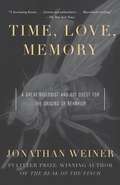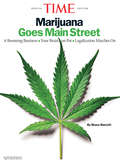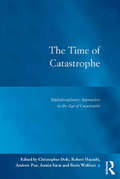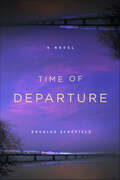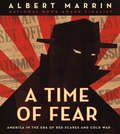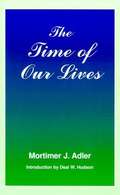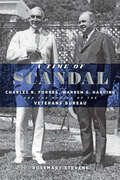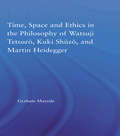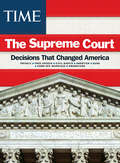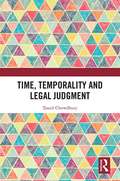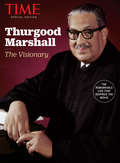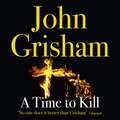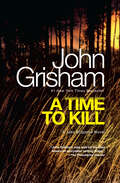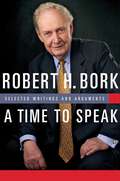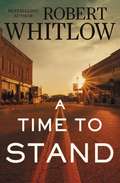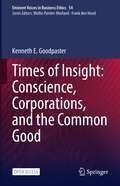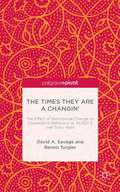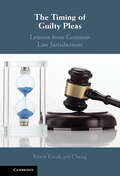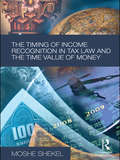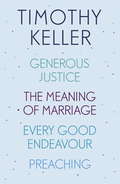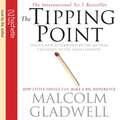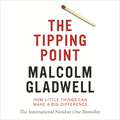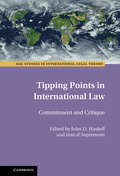- Table View
- List View
Time Limited Interests in Land
by Cornelius Van Der Merwe Alain-Laurent VerbekeA comprehensive comparative treatment of six instances of time-limited interests in land as encountered in fourteen European jurisdictions. The survey explores the commercial or social origins of each legal institution concerned and highlights their enforceability against third parties, their content and their role in land development. The commercial purpose of residential and agricultural leases is contrasted with the social aim of personal servitudes (and its common-law equivalent liferent) to provide sustenance for life to mostly family members making the latter an important estate planning device. Whereas the ingrained principles of leases and personal servitudes restrain the full exploitation of land, it is indicated that public authorities and private capital could combine to turn the old-fashioned time-limited institutions of hereditary building lease (superficies) and hereditary land lease (emphyteusis) into pivotal devices in alleviating the acute shortage of social housing and in promoting the fullest exploitation of pristine agricultural land.
Time, Love, Memory: A Great Biologist and His Quest for the Origins of Behavior
by Jonathan WeinerJonathan Weiner brings his skills to the story of Benzer, the Brooklyn-born maverick scientist whose study of genetics and experiments with fruit fly genes has helped revolutionize the connections between DNA and behavior both animal and human.
TIME Marijuana Goes Mainstreet: A Booming Business - Your Brain on Pot - Legalization Marches On
by Bruce BarcottWelcome to the end of the war on pot. With more landmark legislation in 2016, marijuana has continued its march toward legalization and normalization, 29 states having gone medically legal. In this updated adaptation, based on Bruce Barcott's groundbreaking book Weed the People, we look at some of the key issues surrounding pot:What benefits has it shown in treating conditions ranging from glaucoma to multiple sclerosis to PTSD? How did it come to be classified as a Schedule I drug?Who are the harvesters, investors and entrepreneurs bringing pot out of the shadows and grow rooms and into the marketplace?How does such a marketplace come to exist amid a complicated regulatory framework?Where do we go from here, at a time when states are increasingly pro-legalization but a new federal administration could change things at any time?
The Time of Catastrophe: Multidisciplinary Approaches to the Age of Catastrophe (Law, Justice and Power)
by Christopher Dole Robert Hayashi Andrew Poe Austin SaratIf catastrophes are, by definition, exceptional events of such magnitude that worlds and lives are dramatically overturned, the question of timing would pose a seemingly straightforward, if not redundant question. The Time of Catastrophe demonstrates the analytic productiveness of this question, arguing that there is much to be gained by interrogating the temporal conceits of conventional understandings of catastrophe and the catastrophic. Bringing together a distinguished, interdisciplinary group of scholars, the book develops a critical language for examining 'catastrophic time', recognizing the central importance of, and offering a set of frameworks for, examining the alluring and elusive qualities of catastrophe. Framed around the ideas of Agamben, Kant and Benjamin, and drawing on philosophy, history, law, political science, anthropology and the arts, this volume seeks to demonstrate how the question of 'catastrophic time' is in fact a question about something much more than the frequency of disasters in our so-called 'Age of Catastrophe'.
Time of Departure: A Novel
by Douglas SchofieldFull of spellbinding twists, Douglas Schofield's Time of Departure will appeal not only to thriller aficionados, but to readers who appreciate a strong female lead and a compelling love story. A page-turner that will keep readers on the edge of their seats, Time of Departure heralds the arrival of an immensely talented new crime novelist.Florida state prosecutor Claire Talbot is as tough as they come, and not everyone loves her for it. Newly promoted Felony Division Chief, Claire has about as many jealous detractors as she does supporters. Some colleagues are openly skeptical about her youth, her abilities, and even her gender. When a highway project construction crew unearths two skeletons in a common grave, Claire reopens an investigation into a string of abductions that took place before she was born. While researching the file, she meets retired cop Marc Hastings, who once worked on the case. He maneuvers his way into the investigation-and into Claire's life. Marc has an uncanny familiarity with Claire's habits, and she begins to realize that not all is as it seems. The detective urges Claire on, mysteriously convinced that only she can solve the case. Together, they unearth more graves. But then, disaster strikes ... and Claire finally discovers what Hastings knew all along. It's a secret almost too shocking for a sane mind to grasp. The key to the killings may lie deep in Claire's own past. But what if Claire's past lies in her future?
A Time of Fear: America in the Era of Red Scares and Cold War
by Albert MarrinFrom National Book Award Finalist and Sibert Honor Author Albert Marrin, a timely examination of Red Scares in the United States, including the Rosenbergs, the Hollywood Ten and the McCarthy era.In twentieth century America, no power--and no threat--loomed larger than the communist superpower of the Soviet Union. America saw in the dreams of the Soviet Union the overthrow of the US government, and the end of democracy and freedom. Meanwhile, the Communist Party of the United States attempted to use deep economic and racial disparities in American culture to win over members and sympathizers.From the miscarriage of justice in the Scotsboro Boys case, to the tragedy of the Rosenbergs to the theatrics of the Hollywood Ten to the menace of the Joseph McCarthy and his war hearings, Albert Marrin examines a unique time in American history...and explores both how some Americans were lured by the ideals of communism without understanding its reality and how fear of communist infiltration at times caused us to undermine our most deeply held values. The questions he raises ask: What is worth fighting for? And what are you willing to sacrifice to keep it?Filled with black and white photographs throughout, this timely book from an award-author brings to life an important and dramatic era in American history with lessons that are deeply relevant today.
The Time Of Our Lives: The Ethics Of Common Sense
by Mortimer J. Adler Deal HudsonIs it a good time to be alive? Is ours a good society to be alive in? Is it possible to have a good life in our time? And finally, does a good life consist of having a good time? Are happiness and "a good life" interchangeable? These are the questions that Mortimer Adler addresses himself to. The heart of the book lies in its conception of the good life for man, which provides the standard for measuring a century, a society, or a culture: for upon that turns the meaning of each man's primary moral right - his right to the pursuit of happiness. The moral philosophy that Dr. Adler expounds in terms of this conception he calls "the ethics of common sense," because it is as a defense and development of the common-sense answer to the question "can I really make a good life for myself?"
A Time of Scandal: Charles R. Forbes, Warren G. Harding, and the Making of the Veterans Bureau
by Rosemary StevensA look at what really happened in the U.S. Veterans’ Bureau Scandal in the 1920s.In the early 1920s, as the nation recovered from World War I, President Warren G. Harding founded the U.S. Veterans Bureau, now known as the Department of Veterans Affairs, to treat disabled veterans. He appointed his friend, decorated veteran Colonel Charles R. Forbes, as founding director. Forbes lasted only eighteen months in the position before stepping down under a cloud of suspicion. In 1926—after being convicted of conspiracy to defraud the federal government by rigging government contracts—he was sent to Leavenworth Penitentiary. Although he was known in his day as a drunken womanizer, and as a corrupt toady of a weak president, the question persists: was Forbes a criminal or a scapegoat?Historian Rosemary Stevens tells Forbes’s story anew, drawing on previously untapped records to reveal his role in America’s commitment to veterans. She explores how Forbes’s rise and fall in Washington illuminates Harding’s efforts to bring business efficiency to government. She also examines the scandal in the context of class, professionalism, ethics, and etiquette in a rapidly changing world. Most significantly, Stevens proposes a revisionist view of both Forbes and Harding: They did not defraud the government of billions and do not deserve the reputation they have carried for a hundred years.Packed with conniving friends, FBI agents, and rival politicians as well as gamblers, revelers, and wronged wives, A Time of Scandal will appeal to anyone interested in political gossip, presidential politics, the “Ohio Gang,” and the 1920s.
Time, Space, and Ethics in the Thought of Martin Heidegger, Watsuji Tetsuro, and Kuki Shuzo
by Graham MayedaIn this book, Graham Mayeda demonstrates how Watsuji Tetsuro and Kuki Shuzo, two twentieth-century Japanese philosophers, criticize and interpret Heideggerian philosophy, articulating traditional Japanese ethics in a modern idiom.
TIME Supreme Court Decisions
by The Editors of TIMETIME Magazine examines important decisions by the Supreme Court.
Time, Temporality and Legal Judgment
by Tanzil ChowdhuryThis book challenges the correspondence theory of judicial fact construction – that legal rules resemble and subsume facts ‘out there’ – and instead provides an account of judicial fact construction through legally produced times- or adjudicative temporalities- that structure legal subject and event formation in legal judgement.Drawing on Bergsonian and Gadamerian theories of time, this book details how certain adjudicative temporalities can produce fully willed and autonomous subjects through ‘time framed’ legal events – in effect, the paradigmatic liberal legal subject – or how alternative adjudicative temporalities may structure legal subjects that are situated and constituted by social structures. The consequences of this novel account of legal judgement are fourfold. The first is that judicial fact construction is not exclusively determined by the legal rule (s) but by adjudication’s production of temporalities. The second is that the selection between different adjudicative temporalities is generally indeterminate, though influenced by wider social structures. As will be argued, social structures, framed as a particular type of past produced by certain adjudicative temporalities, may either be incorporated in the rendering of the legal event or elided. The third is that, with the book’s focus on criminal law, different deployments of adjudicative temporalities effect responsibility ascription. Finally, it is argued that the demystification of time as that which structures event and subject formation reveals another way in which to uncover the politics of legal judgement and the potential for its transformative potential, through either its inclusion or its elision of social structures in adjudication’s determination of facts.This book will be of interest to students and scholars in the field of legal judgement, legal theory and jurisprudence.
TIME Thurgood Marshall: The Visionary
by The Editors of TIMEAs an accomplished civil rights lawyer, then serving as the first African-American justice on the Supreme Court, Thurgood Marshall changed the face and course of justice in America, becoming an inspirational figure for millions. From his early days at Howard University, to his 25-year association with the NAACP, and the landmark case Brown v. Board of Education, he championed and triumphed in dozens of cases on civil liberties, affirmative action, the rights of the accused, and the death penalty. As a Supreme Court Justice, his interpretation of the Constitution led to the insurance of fair treatment for the disadvantaged in a world where judges, police, and legislatures could not be counted on to use their power fairly, and he became a voice for the voiceless. Now, in a new Special Edition from TIME, Thurgood Marshall: The Visionary, his life and legacy are examined through thoughtful essays and historic photographs. This Special Edition traces his upbringing in Baltimore, MD, his years in college and law school, his work with the NAACP, his relationship with Lyndon Johnson and more. Chapters outline the major cases that came before the Court during his tenure along with his position, and another, ÒIn Their Own Words,Ó brings together thoughtful remembrances from those who knew and worked alongside him, including Vernon Jordon, Juan Williams and Constance Baker Motley. Firmly placing Marshall in the context of his time as a visionary and examining how his social and legal legacy lives on to this day, Thurgood Marshall is a thoughtful portrait of a great American.
A Time To Kill
by John GrishamThe multi-million copy bestselling thriller that introduced Jake Brigance to Clanton and inspired a sequel, Sycamore Row.When Carl Lee Hailey guns down the hoodlums who have raped his ten-year-old daughter, the people of Clanton see it as a crime of blood and call for his acquittal.But when extremists outside Clanton hear that a black man has killed two white men, they invade the town, determined to destroy anything and anyone that opposes their sense of justice.Jake Brigance has been hired to defend Hailey. It's the kind of case that can make or break a young lawyer. But in the maelstrom of Clanton, it is also the kind of case that could get a young lawyer killed"Grisham is an absolute master!" - The Washington Post(P)1992 Random House, LLC
A Time to Kill: A Novel (Jake Brigance #1)
by John Grisham#1 NEW YORK TIMES BESTSELLER • The master of the legal thriller probes the savage depths of racial violence in this searing courtroom drama featuring the beloved Jake Brigance. &“John Grisham may well be the best American storyteller writing today.&”—The Philadelphia InquirerThe life of a ten-year-old black girl is shattered by two drunken and remorseless white men. The mostly white town of Clanton in Ford County, Mississippi, reacts with shock and horror at the inhuman crime—until the girl&’s father acquires an assault rifle and takes justice into his own hands.For ten days, as burning crosses and the crack of sniper fire spread through the streets of Clanton, the nation sits spellbound as defense attorney Jake Brigance struggles to save his client&’s life—and then his own. Don&’t miss John Grisham&’s new book, THE EXCHANGE: AFTER THE FIRM!
A Time to Speak: Selected Writings and Arguments
by Robert H. BorkSince at least 1971, when he published a seminal article on constitutional interpretation in the Indiana Law Journal, Robert Bork has been the legal and moral conscience of America, reminding us of our founding principles and their cultural foundation. The scourge of liberal ideologues both before and after Ronald Reagan nominated him for the Supreme Court in 1987, Bork has for fifty years unwaveringly exposed—and explained—the hypocrisy and dereliction of duty endemic among our nation's elites, the politicization and adversary activism of our courts, and the consequent degradation of American society. Now, for the first time, Judge Bork has gathered together his most important and prophetic writings in A Time to Speak, including a foreword and commentary by the author. The volume includes more than sixty vintage Bork contributions on topics ranging from President Nixon to St. Thomas More, from abortion to antitrust policy, and from civil liberties to natural law. It also includes several of his judicial opinions and transcribed oral arguments. A Time to Speak is an indispensable book for all who have harkened to the truths spoken so forthrightly, in season and out, by this great American original.
A Time to Stand
by Robert WhitlowIn a small Georgia town where racial tensions run high and lives are at stake, can one lawyer stand up for justice against the tide of prejudice on every side?Adisa Johnson, a young African-American attorney, is living her dream of practicing law with a prestigious firm in downtown Atlanta. Then a split-second mistake changes the course of her career.Left with no other options, Adisa returns to her hometown where a few days earlier a white police officer shot an unarmed black teen who is now lying comatose in the hospital.Adisa is itching to jump into the fight as a special prosecutor, but feels pulled to do what she considers unthinkable—defend the officer.As the court case unfolds, everyone in the small community must confront their own prejudices. Caught in the middle, Adisa also tries to chart her way along a path complicated by her budding relationship with a charismatic young preacher who leads the local movement demanding the police officer answer for his crime.This highly relevant and gripping novel challenges us to ask what it means to forgive while seeking justice and to pursue reconciliation while loving others as ourselves.
Times of Insight: Conscience, Corporations, and the Common Good (Issues in Business Ethics #54)
by Kenneth E. GoodpasterThis open access book traces the research and teaching contributions of Kenneth Goodpaster over more than 45 years of his career. The book shows the content and the progression of these themes over the years identifying four insights in applied ethics: the moral insight, the institutional insight, the anthropological insight, and the Socratic insight. It highlights such concepts as conscience, corporate responsibility, corporations as agents and as recipients, stockholders, stakeholders, comprehensive moral thinking, and ethics education. In addition, Goodpaster explains phrases such as teleopathy, moral projection, human dignity, and the common good. Finally, the book examines with concern the implications of the foregoing for the polarizing and partisan trends in contemporary business behavior.Kenneth Goodpaster’s new book, Times of Insight: Conscience, Corporations, and the Common Good reflects the culmination of 50 years of incredible philosophical insights forming the basis of business ethics. His concept of ‘corporate conscience’ as a moral projection from individual conscience to organizational behavior is both an original as well as a most worthwhile approach to organizational responsibility. Coupling that with a clear notion of the common good, Goodpaster provides substantive grounds for a creative analysis of ethical issues in business. This is one of the most exciting new books in the field. - Patricia H. Werhane, Professor Emerita, University of Virginia and Professor Emerita, DePaul University. "Beginners beware. “Wickedly interdisciplinary” describes corporate ethics. More than “interdisciplinary,” the field asks questions that range across disciplines, nations and centuries. Who better to cut this Gordian Knot than Ken Goodpaster, a true giant in the field, who mixes a prodigious knowledge of contemporary corporations with a deep understanding of intellectual history to produce a new and stunning amalgam. A must-read." - Thomas Donaldson, The Mark O. Winkelman Professor, The Wharton School, University of Pennsylvania As one of the pioneers in business ethics, Kenneth Goodpaster has given us a great gift of synthesizing 50 years of philosophical reflection and corporate practice on some of the most important questions and issues for business today. This work is not nostalgia, but an important source of wisdom for leaders today and into the future. - Dr. Michael Naughton, Director, Center for Catholic Studies, Koch Chair in Catholic Studies, University of St. Thomas
The Times They Are A Changin’: The Effect of Institutional Change on Cooperative Behaviour at 26,000 ft over Sixty Years
by David A. Savage Benno TorglerThis narrative and empirical analysis investigates Hilary's claim that in his day they would not have left a man behind to die. The authors examine over 60 years of Himalayan climbing data and stories in order to test the changes in cooperation in this extreme life and death environment.
The Timing of Guilty Pleas: Lessons from Common Law Jurisdictions
by Kevin ChengWhile guilty pleas are the primary mode of criminal case dispositions across different legal jurisdictions, this topic remains an understudied area. The assumption is that defendants are 'playing the system' and that a sliding scale of sentence discounts is necessary to encourage early guilty pleas, which offer utilitarian benefits of efficiency. These assumptions lack a solid empirical foundation. This book offers a comprehensive investigation of how the timing of guilty pleas affects various facets of the criminal process, from the factors that affect this timing, to the effects that the sliding scale of sentence discounts have on sentences and public opinions about them. It also draws comparisons between Western and Asian legal systems, specifically those of England and Wales and Hong Kong. This book is addressed to scholars, legal practitioners, policymakers and those interested in criminal justice, socio-legal studies and empirical legal research.
The Timing of Income Recognition in Tax Law and the Time Value of Money
by Moshe ShekelTime itself creates advantages and disadvantages in the field of taxation. The timing of the recognition of income and expenses for tax purposes has two main implications: firstly, for the timing of the collection of tax, and secondly, for the question of quantification, i.e., how to ensure that the difference between the timing of the recognition of income or expenses, as opposed to the respective dates on which the amounts are actually received or paid, does not distort the determination of the amount of chargeable income. The time component is a weapon in the confrontation between the opposing motivations of the taxpayers and the tax authorities. In any given fiscal year, taxpayers seek to present a minimal picture of their chargeable income, by "deferring" the recognition of income or "advancing" the recognition of expenses. As opposed to this, the tax authorities adopt the opposite strategy: maximizing taxable "profit" in any given year. This book critically examines the various approaches that have been adopted in the tax systems in the UK, the US and Israel in relation to the timing of income recognition and expenses for tax purposes. It suggests an innovative tax model that identifies the advantages that arise to the taxpayer as a result of the differences between the timing of the recognition of income and expenses, and the timing of the receipt of the revenue or the payment of a liability, and taxes only that advantage.
Timothy Keller: Generous Justice, The Meaning of Marriage, Every Good Endeavour, Preaching
by Timothy KellerGenerous Justice - Keller explores a life of justice empowered by an experience of grace.The Meaning of Marriage - co-authored with his wife, Kathy, Keller turns his attention to that most complex of matters: our need for love, and its expression in marriage.Every Good Endeavour - Keller argues that God's plan is radically more ambitious than work being a means to and end: he actually created us to work.Preaching - known for his insightful, down-to-earth sermons and talks, Keller helps people understand themselves, encounter Jesus and apply the Bible to their lives.
Tiny But Mighty: Kitten Lady's Guide to Saving the Most Vulnerable Felines
by Hannah ShawFrom Kitten Lady, the professional kitten rescuer, humane educator, animal advocate, and owner of the popular Instagram @kittenxlady comes the definitive book on saving the most vulnerable—and adorable—feline population: newborn kittens.Hannah Shaw, better known as Kitten Lady, has dedicated her life to saving the tiniest felines, but one doesn't have to be a professional kitten rescuer to change—and save—lives. In Tiny but Mighty, Hannah not only outlines the dangers newborn kittens face and how she combats them, but how you can help every step of the way, from fighting feline overpopulation on the streets to fostering unweaned kittens, from combating illness to combating compassion fatigue, from finding a vet to finding the purrfect forever home. Filled with information on animal welfare, instructional guides, and personal rescue stories of kittens like Chloe, Tidbit, Hank, and Badger—not to mention hundreds of adorable kitten photos—Tiny but Mighty is the must-have kitten book for cat lovers, current-and-future rescuers, foster parents, activists, and advocates.
The Tipping Point: How Little Things Can Make a Big Difference
by Malcolm Gladwell'A wonderful page-turner about a fascinating idea that should affect the way every thinking person thinks about the world around him' Michael LewisIn this brilliant and original book, Malcolm Gladwell explains and analyses the 'tipping point', that magic moment when ideas, trends and social behaviour cross a threshold, tip and spread like wildfire. Taking a look behind the surface of many familiar occurrences in our everyday world, Gladwell explains the fascinating social dynamics that cause rapid change.'Hip and hopeful, THE TIPPING POINT is like the idea it describes: concise, elegant but packed with social power. A book for anyone who cares about how society works and how we can make it better' George Stephanopoulos
The Tipping Point: How Little Things Can Make a Big Difference
by Malcolm Gladwell'A wonderful page-turner about a fascinating idea that should affect the way every thinking person thinks about the world around him' Michael LewisIn this brilliant and original book, Malcolm Gladwell explains and analyses the 'tipping point', that magic moment when ideas, trends and social behaviour cross a threshold, tip and spread like wildfire. Taking a look behind the surface of many familiar occurrences in our everyday world, Gladwell explains the fascinating social dynamics that cause rapid change.'Hip and hopeful, THE TIPPING POINT is like the idea it describes: concise, elegant but packed with social power. A book for anyone who cares about how society works and how we can make it better' George Stephanopoulos
Tipping Points in International Law: Commitment and Critique (ASIL Studies in International Legal Theory)
by John D. Haskell Jean D’AspremontAddressing some of the most perilous, controversial issues in international law and governance, this volume brings together legal scholars from diverse geographic, personal and scholarly perspectives. They reflect on the pervasive feeling of crisis in the world today and share their views on the possibilities and limits of the international legal architecture and its expert communities in shaping the world of tomorrow. What exactly is this feeling that the contemporary international legal architecture is at a tipping point? What do these possible risks expose about the fragility and limits of our current conceptual and institutional order? What commitments drive our hopes and anxieties? Authors explore these questions across a wide range of possible tipping points and offer readers a unique snapshot of the lived experience of what it means to be an expert engaged right now in international law and governance. Each chapter covers both theory and practice in analysing a current problem.

